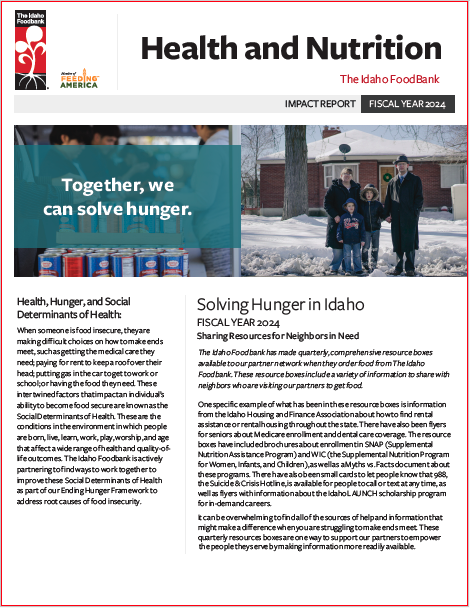
Hunger to Health
The Hunger to Health strategy is focused on the well-being of individuals, along with the health of communities through access to nutritious food and resources required for good health.

The Hunger to Health strategy is focused on the well-being of individuals, along with the health of communities through access to nutritious food and resources required for good health.

Providing nutritious food and working to make the healthy choice, the easy choice.

Access to consistent and healthy food can improve mental and behavioral health.




Consistent access to nutritious foods is vital to wellbeing and different communities across our state experience different challenges in achieving this. Nutrition at every age is critical for our health and well-being. The cycle of hunger shows that people often find themselves in the position of making difficult decisions when they are food insecure.
Review the Idaho Foodbank Health & Nutrition Impact Report for Fiscal Year 2024 for more information.

Our food locator will help you find service providers in your area.

Findhelpidaho.org collaborate includes various resources available across the state.